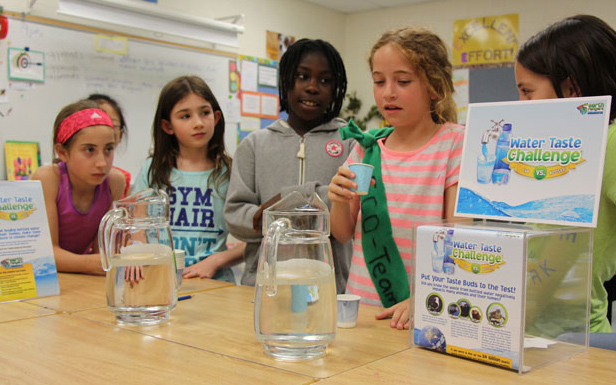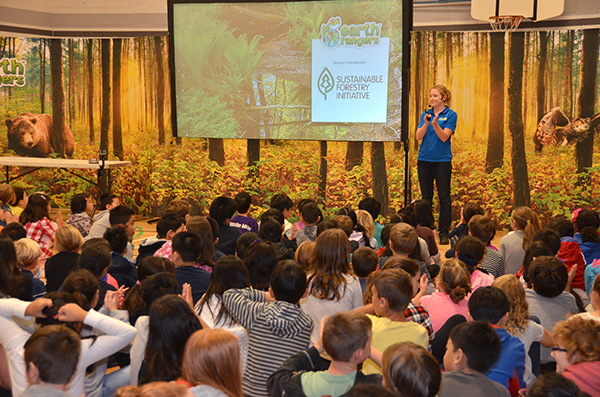The Canadian kids’ conservation organization, Earth Rangers wants to create a new generation of conservationists by focusing on hope. Learn more about how this SFI partner is inspiring new generations who are ready to roll up their sleeves and do what it takes to make a better future.
Jess Kaknevicius, SFI’s Vice President of Community Engagement, sat down with Tovah Barocas, Earth Ranger’s new President to discuss their new Clubs program, and how support from the SFI Community Grants Program helped it to grow.
Q: How do you see SFI supporting your new Earth Rangers Clubs program?

In 2019, with support from an SFI Community Grant, we piloted Earth Rangers Clubs in 24 schools in our efforts to expand our programming to reach more schools across Canada. Our Clubs program focuses on providing ongoing opportunities for classrooms to engage in Earth Rangers programming, outside of our traditional school assemblies.
Q: How do the Clubs fit into your overall programming?

The Clubs program is also an important way for us to inspire ongoing environmental action in schools after our assembly has been delivered—something teachers have been asking about for years. We heard from educators that they wanted ways to continue to engage after we have left their school, so our Clubs program was the perfect way to make that happen.
Q: Were there any concerns that busy teachers wouldn’t support adding another club?
We recognize that over 40% of schools who have received our programming already have some form of an Eco Club. While some are robust and active, many were strictly dependent on leadership from individual teachers and were at risk of less activity if teachers were busy. High-quality resources for extracurricular clubs can also sometimes be difficult to come by.
We didn’t want to add to teacher workloads by creating another club or program; we wanted to give these EcoClubs tools—or as we call them, “Missions”—to keep them active throughout the year. These Missions include background information for teachers and detailed instructions to make them as easy as possible for teachers to implement with their Clubs. As with all our programs, Missions always relate back to protecting animals. These include activities like organizing shoreline clean-ups and planting pollinator gardens.
Q: What role did SFI play in the development of these new Missions?
Thanks to support from SFI, we were able to introduce two new Missions—one evaluating the health of schoolyards inspired by a Project Learning Tree GreenSchools Investigation and one about the role Indigenous Peoples play in conservation. We really recognize that our SFI Community Grant is coming from an organization that shares our values when it comes to supporting sustainable forestry and local communities.
Q: Any highlights from bringing these new Missions to life?
I really enjoyed the Traditional Knowledge Mission. We have had such a great response, which really speaks to the fact that kids are interested in learning more about Indigenous knowledge, storytelling, and art. We see this mission as an opportunity to bring Indigenous content to life in creative ways. We have also seen it lead to increased interest from Indigenous communities requesting our programs.
Q: At the start of our conversation, you described the Clubs as a pilot program. What are the next steps?

Q: What advice would you give to organizations that want to work with SFI?
I encourage community and conservation groups devoted to creating a better, more sustainable future to seek out ways to partner with SFI through their community grants and conservation grants.
